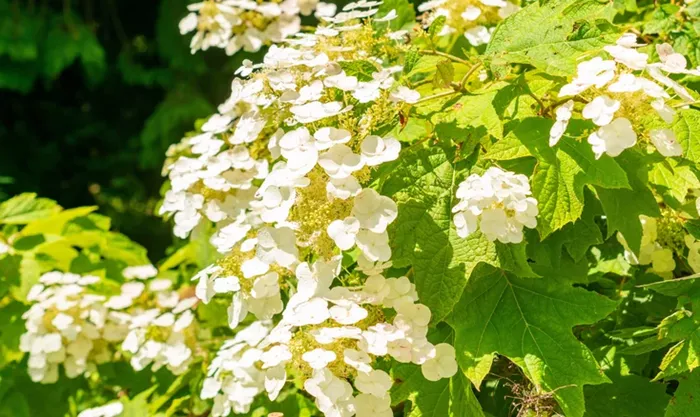Oakleaf hydrangeas are popular among gardeners due to their lush foliage, which resembles oak tree leaves. Even in winter, when the leaves fall, their striking bark enhances garden aesthetics. If you’re considering adding these plants to your garden, you may wonder which plants pair well with them.
Erin Scottberg, a horticulturist and content manager at The Sill, spoke with House Digest about the best companion plants for oakleaf hydrangeas. She recommends astilbe, ferns, bleeding heart, coral bells, rhododendrons, azaleas, witch hazel, and viburnums as excellent pairings.
Understanding Oakleaf Hydrangeas
If you don’t already have oakleaf hydrangeas, here’s what you should know. Scottberg explains that these plants produce large, distinctive leaves in spring, followed by fragrant white blooms from June to fall. As temperatures drop, the foliage deepens in color, contrasting beautifully with the light blooms, which eventually dry to a striking tan.
Best Companion Plants
Scottberg elaborates on the recommended plants. She notes that astilbe and ferns, both shade-loving, have fine, feathery foliage that contrasts nicely with oakleaf hydrangeas. For added color, consider bleeding heart or various Heuchera, known as coral bells, which produce delicate pinkish or reddish flowers.
Rhododendrons and azaleas are also great options, but they need ample space. If your garden is large, these can be wonderful additions. Witch hazel and viburnums provide blooms in winter and spring, extending your garden’s flowering season.
Care Tips for Oakleaf Hydrangeas
Scottberg shares essential care tips for growing oakleaf hydrangeas. These plants bloom on “old growth,” meaning next year’s flowers develop from this fall’s growth. It’s important not to prune them in fall or winter; instead, handle deadheading and maintenance in late summer.
Placement is also crucial. Oakleaf hydrangeas can grow tall, casting shade on nearby plants that require sunlight. To avoid this, consider smaller, compact varieties. If a plant ends up in the wrong spot, you can always relocate it.
Related topics:


